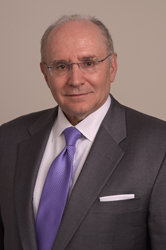
Elder law attorney Anthony J. Enea, member at Enea, Scanlan & Sirignano, LLP
It’s now imperative that anyone who anticipates needing home care services in the next two or three years make an uncompensated transfer of assets to a Medicaid Asset Protection Trust and/or an outright transfer of assets to others before October 1 in order to protect their assets.
WHITE PLAINS, N.Y. (PRWEB)
June 17, 2020
Significant changes to the New York Medicaid program will soon affect the ability of seniors to obtain the Medicaid home care services they need. Westchester County elder law attorney Anthony J. Enea, member at Enea, Scanlan & Sirignano, LLP in White Plains and Somers, N.Y., recently shed light on these changes – set to take effect on October 1, 2020 – including the imposition of a new 30-month look back period for Medicaid Home Care and modifications to the consumer-directed Medicaid program.
Historically, Medicaid home care applicants were able to make transfers of their assets to a Medicaid Asset Protection Trust and/or their children and loved ones without creating a look back period for Medicaid home care services. However, commencing on October 1, 2020, the same transfers will create a 30-month look back period for home care applications.
“For the longest time, New Yorkers were eligible for Medicaid home care services without having to worry about the five-year look back period required for the Medicaid nursing home program,” said Anthony Enea, who has spent 35 years protecting the rights of seniors, the disabled and their families. “These new eligibility rules make asset protection planning an immediate need in order to access Medicaid home care in the near future.”
The new look back period will be calculated the same way the penalty period is currently calculated for skilled nursing home level Medicaid. In the Northern Metropolitan area, the regional rate is $12,805 per month. To determine the length of an individual’s penalty period, Medicaid divides the amount he or she transferred by the regional rate.
“It’s now imperative that anyone who anticipates needing home care services in the next two or three years make an uncompensated transfer of assets to a Medicaid Asset Protection Trust and/or an outright transfer of assets to others before October 1 in order to protect their assets,” explained Enea.
Fortunately, the new rules left spousal refusal untouched. Thus, a married person can still transfer assets to their spouse and, if the spouse has assets and/or income above the permitted amounts, the spouse can execute a spousal refusal, allowing the ill spouse to be eligible for Medicaid. “It’s important to note, however, that executing a spousal refusal gives the Department of Health the right to sue the refusing spouse for the value of the services provided by Medicaid. In recent years Medicaid has been much more aggressive in pursuing spousal refusal cases,” said Enea.
Regardless of one’s marital status, the changes in the rules illustrate the need for seniors to be proactive in making asset transfers, and starting both the 30-month look back for Medicaid home care and the 60-month look back period for Medicaid nursing home sooner rather than later.
Additionally, as part of the new law, Medicaid has tightened eligibility requirements for their Consumer Directed Home Care Program (CDPAP). This program, which allows an individual to hire a family member or friend to provide home care services, will soon require new applicants to need physical maneuvering assistance with more than two activities of daily living (ADL). A person with a dementia or Alzheimer’s diagnosis must at least need supervision with more than one ADL.
“We can’t know what the future holds, but we can plan for it,” said Enea. “With many recent changes in the law concerning Medicaid as well as the realities of the pandemic, now is an ideal time to get your legal matters organized so that you and your loved ones are protected.”
A strong leader in Westchester’s legal community, Anthony J. Enea is chair of the New York State Bar Association’s Senior Lawyers Section and president of the Westchester County Bar Foundation. He was named Westchester County’s Leading Elder Care Attorney at the Above the Bar Awards and Best Lawyers’ 2019 Trusts & Estates “Lawyer of the Year” in White Plains. A past chair of the New York State Bar Association’s Elder Law Section, Enea’s practice areas include elder law; Medicaid asset protection trusts; Medicaid applications (home care and nursing home); special needs planning; guardianships (Article 81 and 17-A); and wills, trusts and estates.
Enea, Scanlan & Sirignano, LLP is located at 245 Main Street in White Plains, N.Y. with additional offices in Somers, N.Y. Elder law attorney Anthony J. Enea can be reached at 914-948-1500 or a.enea@esslawfirm.com. For the latest news, visit Enea, Scanlan & Sirignano online at http://www.esslawfirm.com.
About Enea, Scanlan & Sirignano, LLP
Enea, Scanlan & Sirignano, LLP is an AV preeminent rated elder law firm with offices in White Plains and Somers, N.Y. The practice concentrates on Elder Law; Medicaid Planning; Nursing Home and Home Care Applications; Wills, Trusts and Estates; Guardianships; Estate Litigation; Supplemental Needs Trusts; and Special Needs Planning. Enea, Scanlan & Sirignano, LLP serves Westchester, Rockland, Putnam, the Bronx, Manhattan, Long Island and Queens and is committed to providing the highest quality legal services to seniors, the disabled and their families. Visit the firm online at http://www.esslawfirm.com.
Share article on social media or email:

